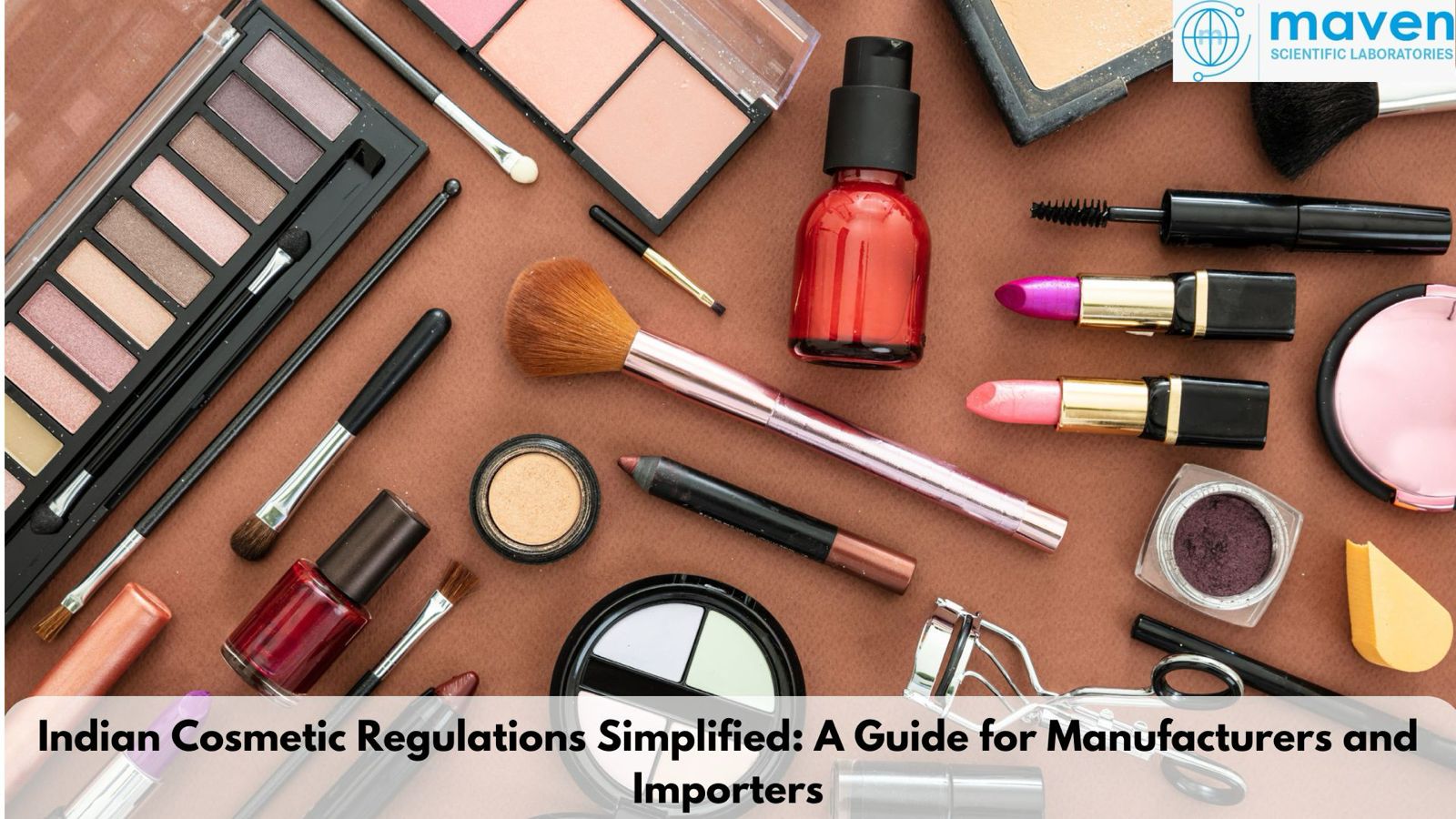
Indian Cosmetic Regulations Simplified: A Guide For Manufacturers And Importers
The cosmetics industry in India is experiencing significant growth, driven by rising consumer awareness, increased disposable incomes, and a shift towards premium and organic products. However, with this growth comes the responsibility of ensuring product safety, efficacy, and compliance with regulatory standards. The regulation of cosmetics in India is primarily overseen by the Central Drugs Standard Control Organization (CDSCO) under the Drugs and Cosmetics Act, 1940, and the Drugs and Cosmetics Rules, 1945.
Key Regulatory Bodies in India
Central Drugs Standard Control Organization (CDSCO)
- CDSCO is the primary regulatory authority for cosmetics in India.
- It operates under the Ministry of Health and Family Welfare and oversees the import, manufacture, and distribution of cosmetics.
- CDSCO ensures that all cosmetic products comply with safety and quality standards.
State Drug Control Authorities (SDCAs)
- SDCAs are responsible for the regulation of locally manufactured cosmetics.
- They grant manufacturing licenses and conduct inspections to ensure compliance with regulatory norms.
Bureau of Indian Standards (BIS)
- BIS provides standards for cosmetic products under the IS (Indian Standards) guidelines.
- Compliance with BIS standards is mandatory for certain categories of cosmetics.
Regulatory Framework
Drugs and Cosmetics Act, 1940
- This Act regulates the manufacture, import, sale, and distribution of cosmetics.
- It defines 'cosmetics' as any product intended to be applied to the human body for cleansing, beautifying, promoting attractiveness, or altering appearance.
Drugs and Cosmetics Rules, 1945
- These rules outline the procedures for licensing, labeling, and approval of cosmetic products.
- Rule 129H specifies the regulatory requirements for cosmetic imports.
Labelling Requirements (Rule 148)
Every cosmetic product must have proper labeling that includes:
- Name of the product
- Manufacturer details
- Batch number
- Expiry date
- List of ingredients
- Directions for use and cautionary statements
Import Regulations
- Imported cosmetics require registration with CDSCO.
- A Registration Certificate (Form 43) must be obtained before importing cosmetics.
Testing and Compliance
- Cosmetic products must be tested in laboratories approved by CDSCO or accredited by NABL (National Accreditation Board for Testing and Calibration Laboratories).
Recent Updates in Cosmetic Regulation
- Introduction of Cosmetics Rules, 2020, which replaced certain provisions of the Drugs and Cosmetics Rules, 1945.
- Emphasis on safety assessments and a mandatory animal testing ban in line with global standards.
- Focus on Good Manufacturing Practices (GMP) for cosmetic manufacturing facilities.
Challenges in Compliance
- Lack of awareness among small-scale manufacturers.
- Navigating complex approval processes for imported products.
- Ensuring compliance with constantly evolving global standards.
How Maven Can Help
Navigating the regulatory landscape for cosmetics in India can be challenging, but Maven offers comprehensive regulatory solutions to ensure seamless compliance and market entry. Here's how Maven can assist:
- Regulatory Intelligence and Strategy Development:
- Maven provides expert insights into the evolving regulatory requirements and helps businesses design a robust compliance strategy.
- Product Registration and Licensing Support:
- Assistance in obtaining manufacturing licenses, import registrations (Form 43), and other necessary approvals from CDSCO and BIS.
- Formulation Review and Safety Assessments:
- Conducting toxicological risk assessments, safety evaluations, and margin of safety calculations for cosmetic ingredients.
- Label Compliance and Claims Substantiation:
- Ensuring compliance with Rule 148 labeling requirements.
- Validating product claims for accuracy and regulatory adherence.
- Product Information File (PIF) Preparation:
- Assisting in preparing Product Information Files (PIF) and other essential regulatory documents.
- Good Manufacturing Practice (GMP) Compliance:
- Supporting the implementation of GMP standards in manufacturing facilities.
- Market Intelligence and Post-Market Surveillance:
- Providing ongoing support to monitor regulatory changes and ensure long-term compliance.
Conclusion
Compliance with Indian cosmetic regulations is essential for ensuring product safety, quality, and market acceptance. Manufacturers, importers, and distributors must stay updated with regulatory changes and align their practices with the guidelines set by CDSCO, BIS, and other regulatory authorities.
Partnering with Maven's team of experts ensures not only smooth navigation through regulatory complexities but also a competitive edge in the growing cosmetics market. With a deep understanding of local and international regulatory frameworks, Maven empowers businesses to achieve compliance and market success effortlessly.
For tailored regulatory solutions, reach out to Maven today and ensure your cosmetic products meet global safety and compliance standards.







